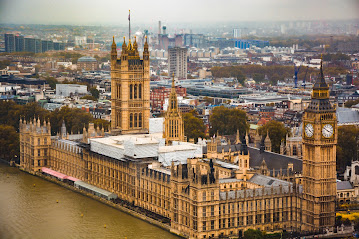Quirks and Traditions of the UK Parliament: Prime Minister's Questions
The UK Parliament is a place where political debates, decisions, and traditions come together in a unique and captivating manner. One of the most renowned and engaging events in the parliamentary calendar is Prime Minister's Questions (PMQs). In this blog post, we will delve into the rich history and intriguing nature of PMQs, exploring their significance, format, and the role it plays in the democratic process.
The Origins of Prime Minister's Questions
Prime Minister's Questions, or PMQs for short, date back to the early 20th century when it became a regular feature of the parliamentary schedule. The tradition of questioning the Prime Minister can be traced back even further, but it was during this time that PMQs began to take their recognizable form as a designated time for MPs to hold the Prime Minister accountable and seek clarifications on government policies and decisions.
Timing and Format
PMQs take place in the House of Commons every Wednesday at noon when Parliament is in session. The session typically lasts for about 30 minutes and is an opportunity for MPs from all parties to question the Prime Minister directly. The questions cover a wide range of topics, including current affairs, domestic issues, international relations, and matters of public concern.
The Importance of PMQs
PMQs hold great significance within the UK political landscape. It provides a platform for MPs to scrutinize the Prime Minister's actions, challenge government policies, and voice the concerns of their constituents. Through rigorous questioning and debate, PMQs allow for transparency, accountability, and open dialogue between the executive and legislative branches of government.
The Atmosphere and Dynamics
PMQs is known for its lively and spirited atmosphere. MPs from both sides of the House engage in robust exchanges, often using wit, rhetoric, and occasional heckling to make their points. The Speaker of the House plays a crucial role in maintaining order and ensuring that the session remains respectful and productive.
The Role of the Prime Minister
During PMQs, the Prime Minister assumes a central role, representing the government and responding to the questions posed by MPs. It is an opportunity for the Prime Minister to showcase leadership, defend government policies, and articulate the government's position on various issues. The Prime Minister's performance during PMQs is often closely watched by the public and the media, reflecting the accountability and transparency of the government.
Engaging the Public
PMQs are not only a parliamentary affair but also an event that engages the public. The session is broadcasted live on television and radio, allowing citizens across the country to witness the proceedings and hear firsthand the questions and answers that shape the political landscape. The public's involvement in PMQs encourages transparency, participation, and an informed citizenry.
Evolution and Adaptation
Over the years, PMQs have evolved and adapted to changing political dynamics and societal expectations. It has become an integral part of the democratic process, offering a platform for diverse voices and promoting robust debate. While the format and dynamics may have shifted, the essence of PMQs remains the same—to hold the government accountable and ensure that the interests of the people are represented.
Conclusion
Prime Minister's Questions is a distinctive and captivating tradition within the UK Parliament. It reflects the principles of democracy, accountability, and open dialogue. By allowing MPs to question the Prime Minister directly, PMQs ensure transparency, encourages public engagement, and hold the government to account. As a cornerstone of the parliamentary calendar, PMQs exemplifies the vibrancy, quirks, and traditions that make the UK Parliament a symbol of democratic governance.




Comments
Post a Comment